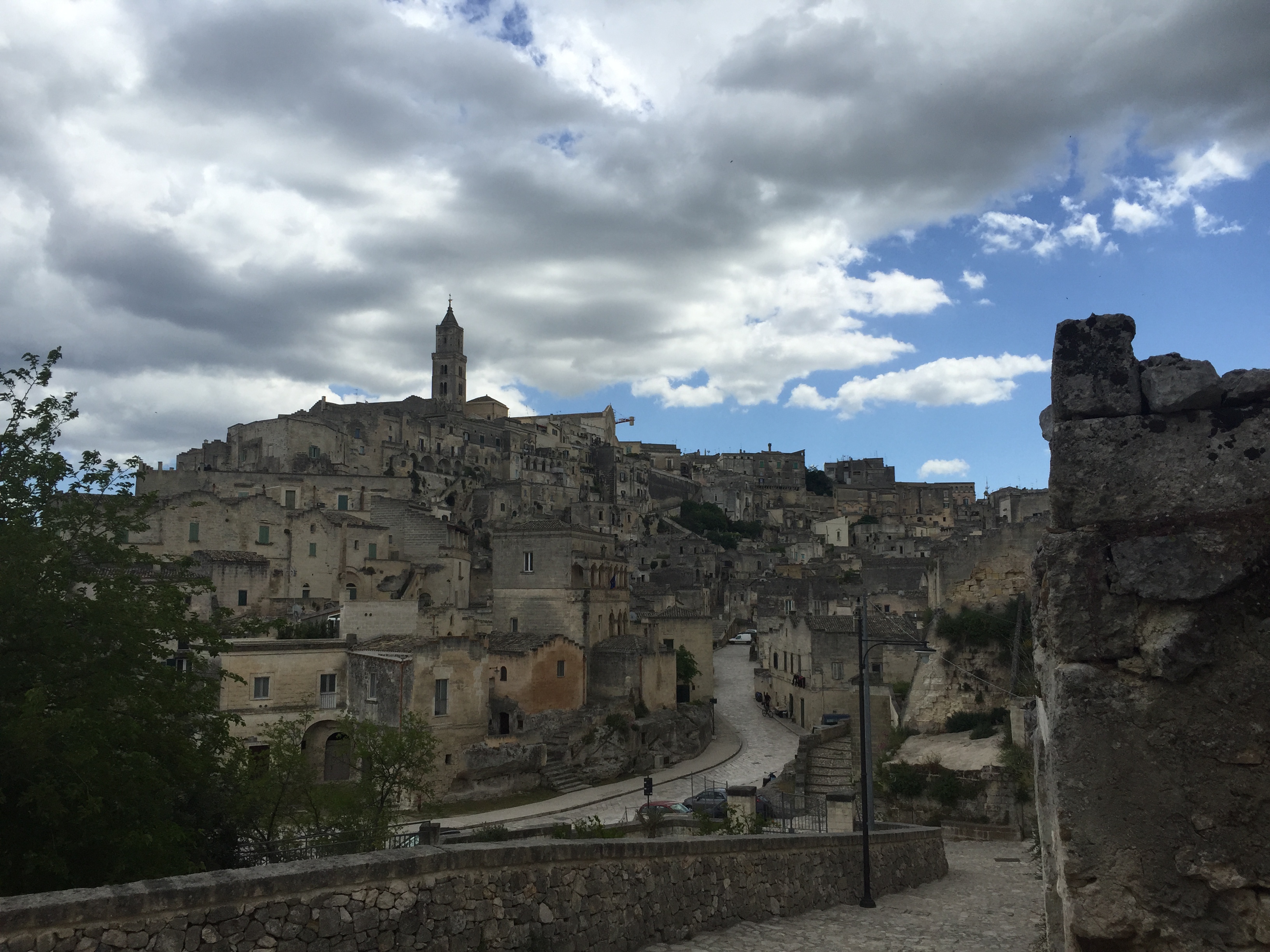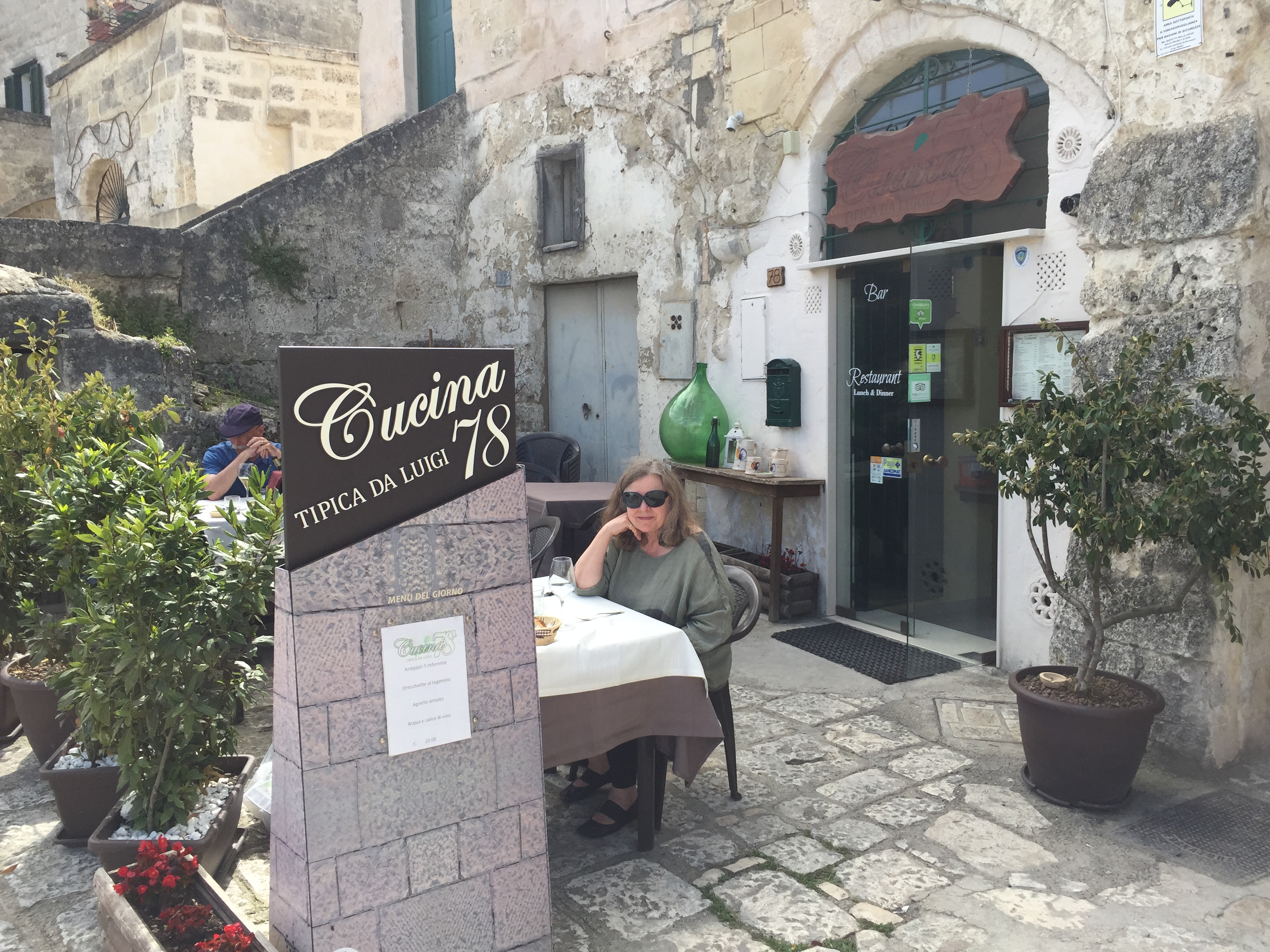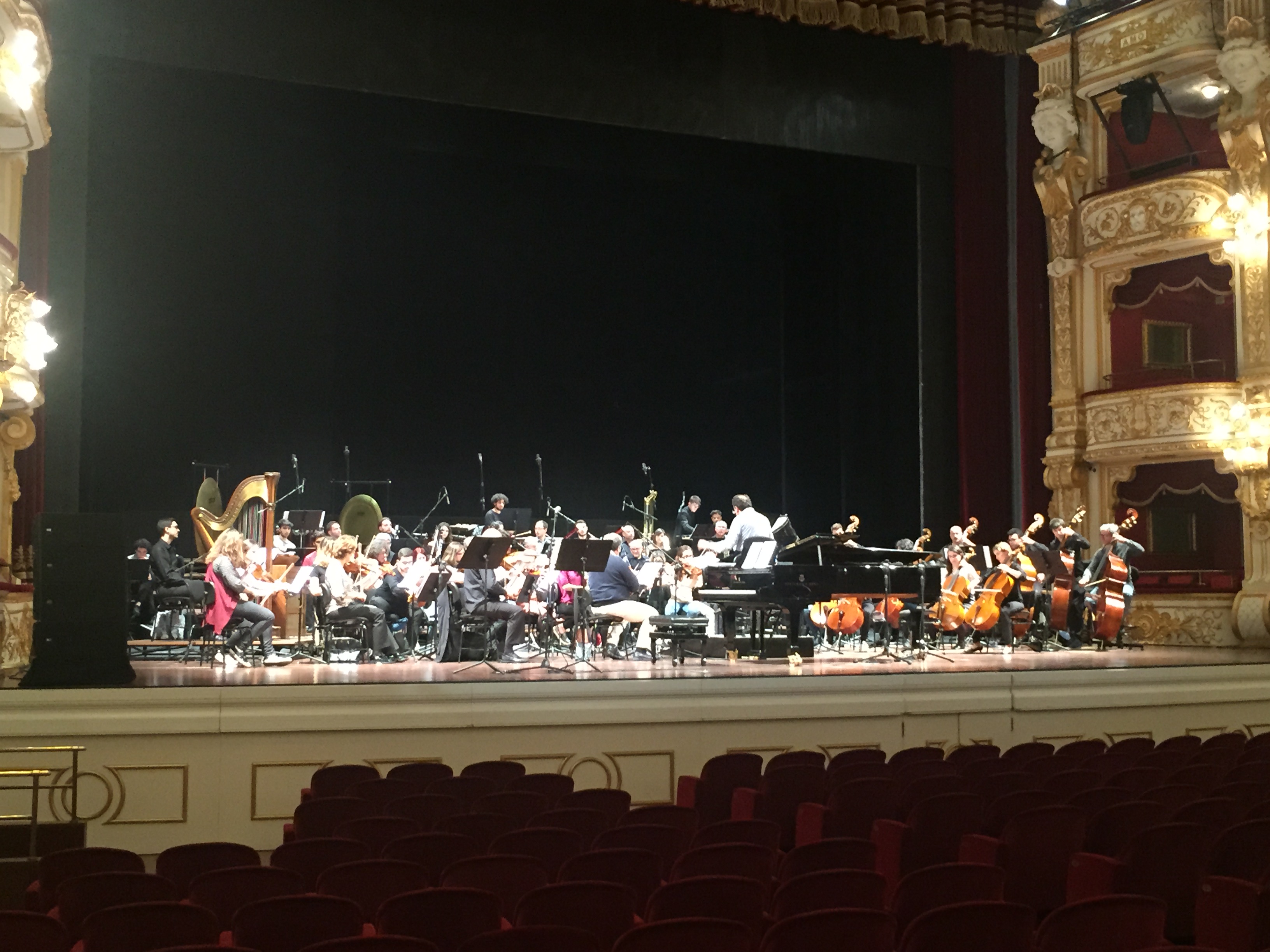Bari – Pianist Emanuele Arciuli, director of the “Embracing the Universe” festival that ended yesterday, likes to casually mention that America is currently producing the best music in the world – and he doesn’t mean pop or jazz. He means postclassical. I didn’t know the whole program when I first wrote about it last week, but here’s a list of all the pieces performed on two concerts and during the conference:
Bernadette Speach: Embrace the Universe and Viola
Michael Gordon: Romeo
Mary Jane Leach: Prospero’s Sigh and Bach’s Set
Eve Beglarian: Fireside and The Marriage of Heaven and Hell
Philip Glass: Etude No. 13
John Adams: American Beserk
Andrew Thomas: So Far Beyond the Faint Edge of the World
David Lang: Before Gravity, After Gravity
Julia Wolfe: Believing
Larry Polansky: Ensembles of Note
me: Serenity Meditation; “Faith” from Transcendental Sonnets; Earth-Preserving Chant; and Sang Plato’s Ghost
With one exception, they’re all friends of mine, all people I’ve written a lot about, and all postminimalists or totalists. (The exception, Andrew Thomas, was chosen by the performers, and his thoughtfully virtuosic percussion showpiece fit in well.) The concerts, well attended and well-received, consisted of the kind of repertoire that would be ubiquitous today had my plans for world domination worked out successfully. The conductors, Giovanni Pelliccia for the orchestra and Filippo Lattanzi for the chamber concert, are both dynamic visionaries. It is so common in the US for me to show up and find the performers not really understanding the piece, that I sometimes fear I don’t capture the idea in the notation well enough; but here, each conductor had a compelling vision for the piece that was obvious from the first notes, and I needed add only the tiniest cosmetic touches and check the occasional questionable note. It was the most thrilling week in my life as a composer.
One of the papers was on the important Italian jazz figure Giorgio Gaslini (1929-2014), who promoted a concept called “Musica Totale,” which involved a blending of classical and vernacular styles. I told Emanuele that if I could prove that totalism originated in Europe, America would start to take it seriously.
Below: the ancient city of Matera, kind of an urban Grand Canyon, and where we ate there:
And the Bari Conservatory Orchestra rehearsing my Transcendental Sonnets:



